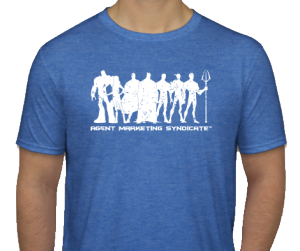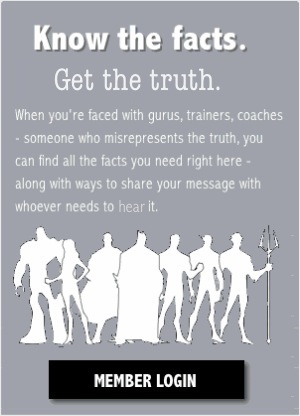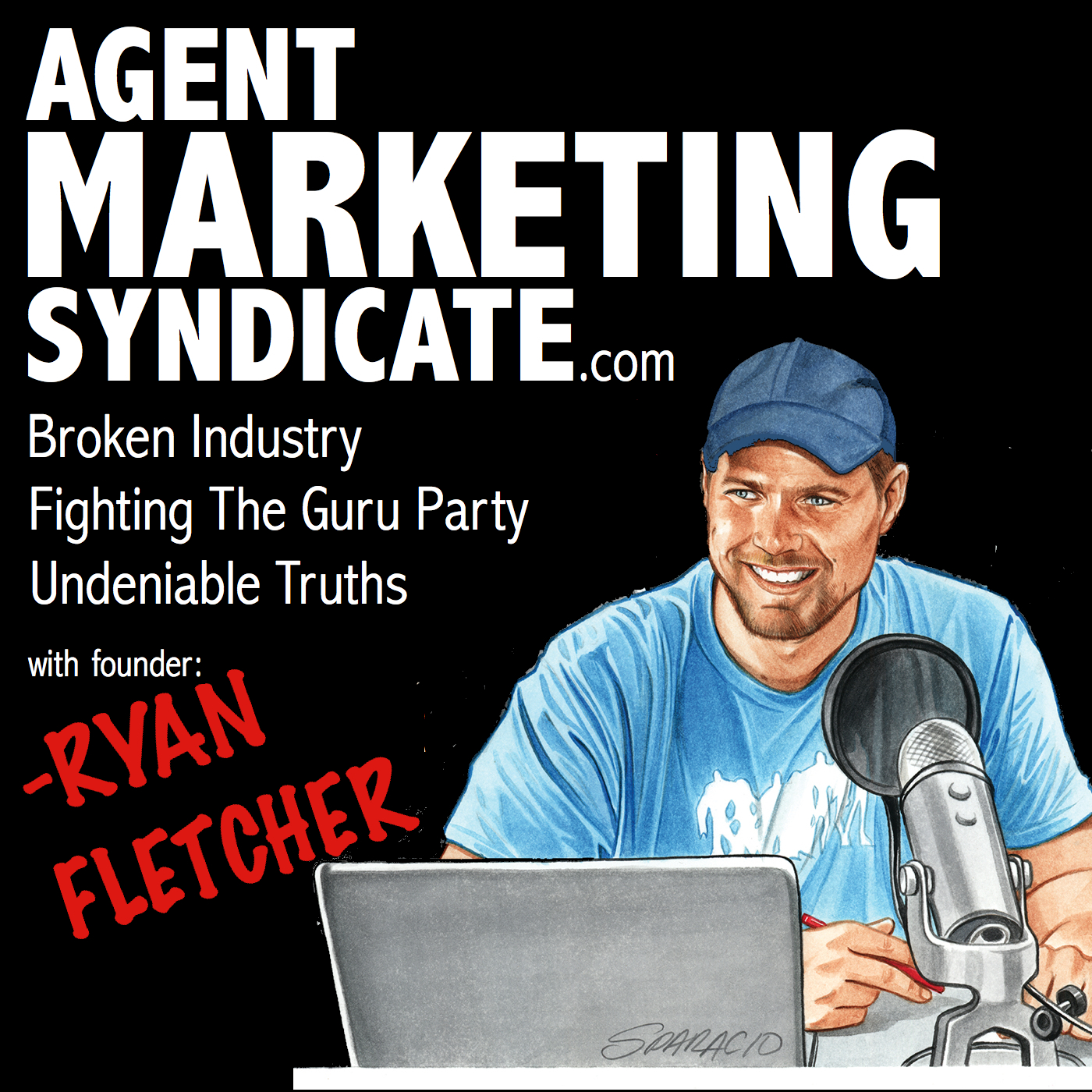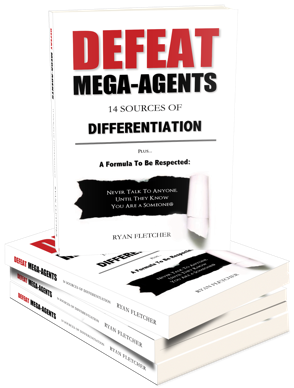DEFEAT MEGA AGENTS? FREE Copies Available
RAW TRANSCRIPT:
FLETCHER: But what I find fascinating James asks him, “So you get something like 40,000 requests for help from companies per month,” I don’t know, this is some sort of outrageous number of requests you get. Is that what they heard?” And so if you have ever listened to the James Alteger podcast you know he’s a bit of a schizophrenic. He’s all over the map. And so here was Marcus’s response, “No, no, no, no, no, since we started…
Recording
MARCUS: “Yeah, since we started the show we’ve had about 40,000 applications and obviously even that work is very involved in the process and very helpful and we do background checks on people and it’s got to be something that I am interested in or it’s got to be a business that I think of you are could relate to or something that I want to learn.”
End of recording
FLETCHER: And so 40,000 applications, it’s got to be something that I am interested in, the viewers can relate to or something I want to learn. And sometimes he talks about, he gets into this business and he knows nothing about them. And so every time he does this he goes, “Sometimes it’s a challenge to myself. I really want to see these 3P’s work; people, process and product.” He goes, “I want to prove it to me.” So I’m literally saying to this myself, if you’ve got this bold proof theory which he believes he does, I want to put it to the test! I want to make sure that it works in every certain circumstance. And sometimes he just goes, “I don’t know if it will but so far it hasn’t failed.”
And so James, he starts to press a more though. “Okay well before you get to know these people though, what are the basic metrics that you use to decide? Okay, I’m going to make this deal with this person. How do you even know how to bring them on the show? So you go from 40,000 applicants, maybe down to 1000 applicants, how do you get down to 10?” So Marcus he comes back and he goes, “I usually go into every business thinking I’m going to make a deal right? I would go if I didn’t think I could make the deal.” And so James of course keeps pressing…
Recording
JAMES: “Even deciding to go, let what makes you decide to visit? Like what you see that makes you decide to visit?”
End of recording
FLETCHER: And Marcus he goes, “The product, it has to be relatable, I have to believe to a certain degree that I can extract some sort of scalability out of it, I can do something with it, I cannot a new product, I can take one of their existing products, I can open up multiple locations. And so if I don’t feel like some level of scale in it, I typically don’t go.”
But here is what is interesting, but…
Recording
MARCUS: “But, the caveat to that is if I really, really love the people.”
End of recording
FLETCHER: “If I really, really love the people” and he continues because this is important.
Recording
MARCUS: “again I see… We do a little Skype video with them before I go and if I love this story, sometimes story and hard trumps economics. I will go to do it because I just like them. It doesn’t mean it’s going to be a bad business deal, it won’t, it will always be a good business new but just because I can’t scale it isn’t an absolute that I won’t do it, it’s not an absolute but it’s typically the rule.”
End of recording
FLETCHER: And so here’s a guy hard-core businessman, he’s looking at the profit, he’s looking at return on investment and the one thing that gets him to break his rule is the story. He is looking for scalability, so we you look at the cars or the ice cream or the manufacturing or distribution candy or clothing, the other companies that she has been involved in, there is always some level of scalability. But he goes on to say they are circumstances, there are instances when he will break that rule.
Recording
MARCUS: “There is one this coming season that isn’t really… People would argue that it is scalable, they would want me to scale it but it’s so fantastic and it’s so unique that it just needs to be what it is and nothing more.”
End of recording
FLETCHER: And so there is the tease, James is hooked, “What do they do? What do they do?” He goes on to say they are in the barbecue business, a little barbecue business in the little town of South Carolina, they are open, 3, 4 days a week, 4 hours a day and they do close to $2 million per year. And James, here is his response.
Recording
JAMES: “Why do they need you? Like what was the problem that was happening?”
MARCUS: “James, you have to watch the show, I can’t tell you that. You have to watch it.”
JAMES: “Now you’ve got me hyped up!”
MARCUS: “We are probably going to air that probably in the week of Thanksgiving because it’s just got a lot of heart and a lot of love and a lot of family in it and…”
End of recording
FLETCHER: Now here’s what’s important to that, there is 2 elements going on here. One is that the power of story is what convinces Marcus some owners to make the exception to his investment rules and so if you are the client for example vying for his money or if you are vying in competition for a client, this story is often times the thing that pushes you over the top. But here is the other aspect, the power of store is what compels people to want to know more. So you heard James there, “Wow, and why do they need you? What was the problem that was happening?” “James, you have to watch the show. I tell you that, you have to watch the show I can tell you that.” “You’ve got me all hyped up…” See, he wants to know the rest of the story.
Here is this little barbecue company, is got the most hard, it’s got the most love, it’s got the most family, it’s the best story, they reserved it for the week of Thanksgiving, the best week and again you have this businessman, you have this investor and the one thing that gets him to break his rule about scalability, product, upside potential is story. And so you see this a lot on Shark Tank, the entrepreneur comes into the tank, he pitches an idea, the pitch is going alright, the product is good and all of these sharks okay whether it be Cuban, Dave and John all on the fence. The next thing you know, they fall up with this story and why this product came to you and why it is important. And the bigger mission and the bigger purpose.
And you can argue that Marcus, a lot of his success, I mean not everybody just gets on TV. There is certainly plenty of candidates for the profit. So what is it? Why is a story so effective? And so here you have a guy that was born in war tour in Beirut, 9 months old he was adopted by a Lebanese family out of Miami and he’s got this great upbringing, this success story. So he’s exposed to positive, prosperous influence and business values, his company owned a car dealership in Florida. At the age of 12, bloomed as an entrepreneur, started a lawnmowing service, generated enough money to open up a can do business. Went to market University, studied political science, run for the house of representatives when he was 22, lost but he refocused himself. Went into some automotive managerial roles, a family friend and former Chrysler CEO Lee Iacocca happen to be one person who advised him. This got him into the camping RV business. He eventually became Chairman, he streamlined the RV industry, bought up consolidated more than 100 different RV companies, combined camping world with good Sam Enterprises, 6000 employees, $3 billion in profit.
And so he’s very successful at telling this story and this is what you see with shark tank too. I don’t know about the product, I don’t know about the business but I like you. There is something about you.
SLOPER: And you see time and time again [15:44] on shark tank that somebody will come in with [15:46 inaudible] and they don’t have a story right? And they could have the greatest numbers and at the end of the day they are just like, “No, I don’t want nothing to do with it.” You know, your valuation is way off, and not even going to deal with it. Versus the other guy that comes in, his numbers and his valuations might be way too high but his story is so great that they are willing to overpay for his company.
FLETCHER: Yep, and so one of the 1st things that we do for example in the protector social superhero program is in the 1st month we want to shift from a negative reputation to an empowered reputation. But before you can even begin to construct a new reputation for yourself, one that isn’t plagued by the label of quote unquote real estate agent, you have to de-Link and disconnect of everything that quote unquote labels you are real estate agent. But as soon as we do the de-link and disconnect process, then we are on to building your character which is your personal narrative, this is what we’re talking about.


RECOMMENDED LINKS AND RESOURCES FROM EPISODE:
- Defeat Mega Agents – Ryan’s new book (FREE copy, just pay shipping)
_ - Broken Industry_– This is why agents are rejected. [Thank The Guru Party]
_ - Protector Video Series_– The ’12-month Experiment’…Most Important Word in R.E.
THANKS FOR LISTENING!
Thanks again for listening to the show! If it has helped you in any way, please share it using the social media buttons you see on the page.
 Additionally, reviews for the podcast on iTunes are extremely helpful and greatly appreciated! They do matter in the rankings of the show and I read each one. Every one. You could even win a FREE Agent Marketing Syndicate® T-Shirt. Just head over to iTunes, leave us a review. Then send me an email with your review, attached. Every 5th review is placed into a drawing to win. That’s a 20% chance of winning, about 7.9 millions times better than winning the lottery.
Additionally, reviews for the podcast on iTunes are extremely helpful and greatly appreciated! They do matter in the rankings of the show and I read each one. Every one. You could even win a FREE Agent Marketing Syndicate® T-Shirt. Just head over to iTunes, leave us a review. Then send me an email with your review, attached. Every 5th review is placed into a drawing to win. That’s a 20% chance of winning, about 7.9 millions times better than winning the lottery.
And lastly, if you have any questions (or would like your comment or feedback to be aired on the podcast), head on over to AskFletcher.com – to record and send your message to Ryan!
Don’t forget to subscribe to the show on iTunes to get automatic updates.
Thanks again for the conversation. I look forward to our next, on the next episode of the Agent Marketing Syndicate® Podcast!
Talk soon… Speak up! 🙂






